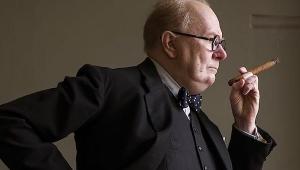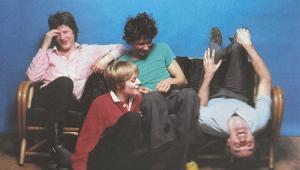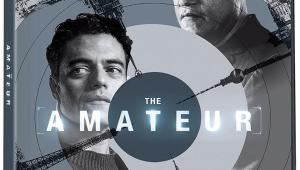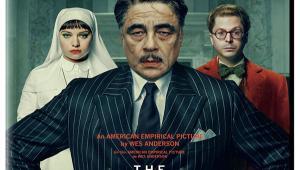Music by....
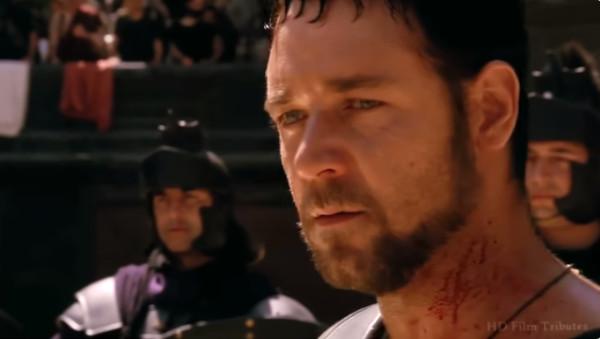
The music score can't save a dog of a film, but it can elevate a good film to a great one and a great film into a classic. I refer here mainly to instrumental or other orchestral scores and not rock, though there are many examples (and fans) of the latter. Sometimes a harsh or atonal score can work (Zimmer's score for the recent two-part Dune), sometimes not. More often, orchestral scores fall into the genre of 19th or early 20th century classical music (more accurately called the Romantic era). Rock, jazz, and techno scores can be less expensive to produce; a symphony orchestra and a large recording studio or concert hall (to record it in) don't come cheap.
Modern film composers sometimes make ample use of older orchestral music, often re-working well-known (or less well-known) classical themes to fit their needs. Sometimes that earlier composition was itself actually written for another film. Compare, for example, the opening fanfare from the film Kings Row (1942), written by Eric Wolfgang Korngold who "allegedly misconstrued the title and created this regally imperialistic introduction that eventually influenced John Williams’ Star Wars and Superman scores." (The quote shown is from the LA Philarmonic website). Sometimes these "borrowings" were adapted from a film composer's own earlier works. James Horner (one of my favorite film composers) frequently borrowed from his own earlier scores. But these borrowings not only extend the life of forgotten or little-known themes but also brings them to new audiences. Writing a film score can be a deadline-crunching business, with the composer seldom given enough time to do the job as well as he or she might have wished.
All of the links here will connect you to relevant clips on YouTube. But as in all things YouTubery, commercial interruptions can be a nuisance unless you've signed up for no ads (I haven't). Patience is often the best approach. As is common for YouTube, bit-compression is basically universal; the clips here vary in picture and sound quality from mediocre to surprisingly good.
Patrick Doyle: Thor
Some of my favorite film score clips come from the first Thor film (and in my opinion the best of any of them before the superhero genre became self-referential). Directed by Kenneth Branagh with an almost Shakespearean touch and a perfect cast, its music was composed by Patrick Doyle, who has composed over 50 film scores and has worked with Branagh on several other projects.
There are links to two scenes here. The first is the closing few minutes of the film and includes mild spoilers (but spoilers from a 14-year old film are unlikely to ruin it for you if you haven't already seen it! These links work together. Let the first link play until Thor approaches the jagged edges of the shattered Rainbow Bridge. Then skip to Link 2, which not only completes the scene but also transitions to the most gorgeous end-credits you're ever likely to see as the "camera" hurtles through space accompanied by Patrick Doyle's brilliant score. The sequence here ends after the final word "Thor" appears on screen, together with a concluding brass fanfare. (In the unedited film itself, added minor credits continue on with a shift in music style that totally shatters the mood. Whenever I watch the film I stop it before that transition.)
Odin "You've Already Made Me Proud". After "There is alway's hope" is heard in Link 1, cut to Link 2.
"Thor Final Scene and End Credits"
Ennio Morricone: The Mission
We've all heard themes from the famous spaghetti westerns of the 1960s starring Clint Eastwood. The music for those films was scored by Ennio Morricone. Twenty years later he wrote the score for a very different film, The Mission. Below is a clip of an extended version, conducted by Morricone himself (he passed in 2020). Here's a puzzle question that even your film-expert friends will almost certainly get wrong, unless they've also read this blog: "Who wrote the music for the first spaghetti western film or other form of Italian-flavored western drama?" Answer: It's not Morricone. It's the Italian composer Giacomo Puccini for his 2010 opera The Girl of the West, or in Italian, La Fanciulla del West.)
Listen here: The Mission (Gabriel's Oboe)
Jerry Goldsmith: Rudy
Jerry Goldsmith also deserves to be remembered for his wide range of brilliant film scores, including, in addition to the ones mentioned earlier, such titles as Patton, Chinatown, and The Mummy. If he's less well-known to the public today than say, John Williams, it's likely only because the latter hitched his musical talents to two of the 20th Century's most prolific, hit-machine directors: Steven Spielberg and George Lucas. Here I've selected one of Goldsmith's smaller titles from his sports duo of film scores, this one for college football film Rudy (for me an admittedly chauvinistic choice!), and the other for high-school basketball story Hoosiers. The score for Rudy's is warm, lush, and quite different from many of Goldsmith's early scores, which should be obvious from the titles listed above. The clip here is relatively long, but memorable.
Hans Zimmer: Gladiator
Last but certainly not least, composer Hans Zimmer has carved out a major niche for himself over the years. While his music can sound aggressive and flashy, it's just as often sweet and reserved. The former is obvious in his recent score, for Dune, but, for me, his best score was written for Gladiator. The latter has its share of aggressiveness when called for, but can be soft, reserved, and moving. Here I've selected two versions of the same music. The first is performed by 2CELLOS on stage and backed up by a full orchestra. The second is performed by the vocalist used in the film and melded into a music video.




